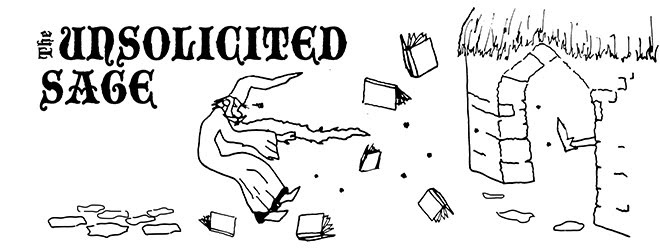So, Google Wave was designed as a collaborative tool. This works out wonderfully, because Wizards of the Coast has mostly spiked the plans to create a gaming table feature for D&D Insider. And for everyone who doesn't play D&D, Google Wave offers an alternative to play-by-post games and similar fare. The advantage of Google Wave lies in the melding of synchronous and asynchronous communication. Basically, with existing programs and web applications, players either had to be sitting down at computers at the same time, or they ran the risk of posting things simultaneously, leading to confusion and redundancy. With Google Wave, all participants can see, in real time, when a contributor is posting. This means that the fluidity of the game is more protected. Players can check in with one another with less chance of derailing the game. And best of all, if a session with everyone present is desired, it is absolutely possible.
The second advantage comes in the form of gadgets and extensions that I mentioned earlier. These are user generated (for the most part) little programs that can run within your Wave. There is an extension that will automatically roll dice when you enter them into the Wave, and a gadget that will show a map, battle mat, or other image withing the Wave and allow you to place markers on it. As more people start to use Google Wave, there will undoubtedly be further improvements to the breadth and application of gadgets and extensions.
Of course, the same flexibility that allows such dynamic game play does come at a price. This medium allows anyone to edit any post in the Wave. This means that there is a bit more of an element of trust than in other formats, where finalized text is immutable, or at least restricted in who can alter it. But it is a necessary price which allows the players to move their character's marker on the map, or to note an immediate interrupt on an enemy's turn. Ultimately, the system's benefits make it ideal for the purposes of the gaming community. I remember a time when several hours of prep work were wasted because my players asked me to grab sodas for them and then stole my adventure notes and read through them. (I was only 13 at the time, and far too trusting a lad!) So trust is not merely required on Google Wave. If you're like me, this is exciting as a way to supplement your table-top game, try another character, or run a campaign you've been itching to start. I still endorse sitting down at a table with friends, but when that isn't an option, I think Google Wave is providing us with an outstanding alternative.
Ideas
Use player "check-ins" during combat or other activities that could involve taking actions that aid or interrupt others. This might slow down the game slightly, but could also reduce the amount of "ret-conning" you have to do. Just have each player edit the post with each turn adding a small, agreed-upon designator at the bottom acknowledging that they have reviewed the actions of the turn and do not wish to take any actions in response. If a player does want to react, such as taking an opportunity action, have them add that instead of their designator. e.g. An orc attacks Stan the Wizard. GM Steve writes out a post detailing the attack and includes the roll, showing a successful hit and the damage dealt. When Bob checks the post later that evening, and sees that the orc his Swordmage marked attacked Stan, he opens the post and adds a line to the effect of: "A brilliant flash of light deflects the brunt of the orc's swing, Stan only receives 4 damage."
Try to set things around 3-day windows. This way, if players have a busy day, or the GM does, no one is getting upset with the lack of movement on the thread. This also gives people a mental count on when the next round is going to occur. Because everything is ultimately editable, it doesn't hurt too much to go back and change things, but from round to round consistency helps players make decisions they are happy with going forward. If a monster crits a character, dropping them to 0 hit points and the Rogue uses his turn to stabilize that character, then the defender comes along having missed the last couple days of action and interrupts the attack, negating the crit, it is understandable that the group is going to be a little miffed about having to redo that whole round and any subsequent rounds that included actions stemming from that chain of events. This is partly addressed by the suggestion above, but setting some sort of loose time table for the progression of rounds gives everyone a way to feel more secure.
Useful Extensions and Gadgets
Fighty is a map extension that allows you to make an interactive battle mat out of most anything. Find the directions on how to use it here.
For a dice simulator, try adding "randomleetwenty@appspot.com" as a "user" to your Wave. The extension will fill in the roll when you write things like "1d20+10."
Now I am off to start planning my Google Wave game. Good luck, and good gaming!

No comments:
Post a Comment